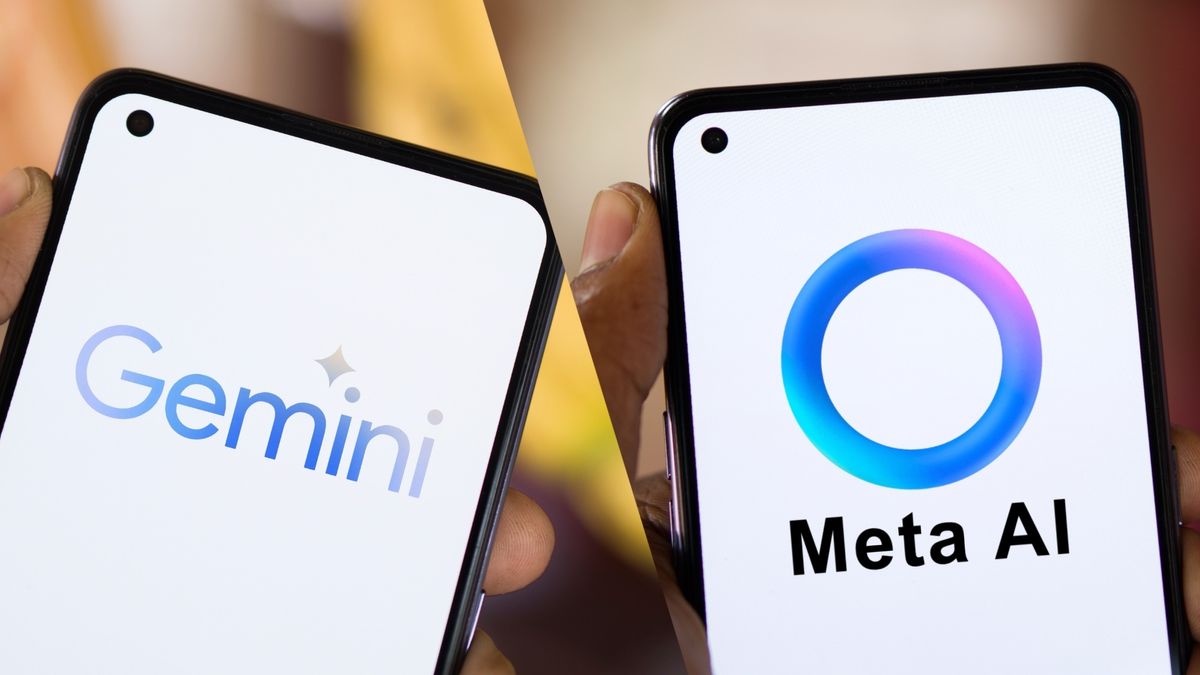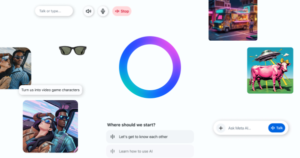Comparing AI Models: My Results from 7 Prompts with Gemini and Meta

Comparing Google’s Gemini AI and Meta’s AI: A Detailed Analysis
In the constantly evolving world of artificial intelligence (AI), Google and Meta stand out as leading competitors. Both companies have developed their own AI models—Google’s Gemini AI and Meta’s version—primarily in response to OpenAI’s ChatGPT. As these AI systems become more sophisticated, they are prepared to challenge the existing market leaders, each boasting unique features and capabilities.
When seeking assistance with basic queries or prompts, many people instinctively turn to ChatGPT. It’s akin to how one might naturally open Google to check the hours of a favorite restaurant. However, advanced AI tools like Gemini and Meta’s model are capable of handling a wider array of tasks—from creative writing to complex coding and language translations.
Prompt Creation
To better understand their individual strengths, I tasked both Google Gemini AI and Meta AI with seven diverse prompts, evaluating their responses. This comparison highlights their areas of expertise and the challenges they face as modern AI models.
1. Coding Proficiency
For the prompt, “Write a Python script that sorts a list of numbers without using built-in sorting functions,” I sought to evaluate each AI’s coding skills. Despite my limited coding background, I noticed a significant difference in their responses.
Meta AI went beyond simply providing a script; it explained how the code functioned and suggested a more effective algorithm for handling larger lists.
Winner: Meta AI stood out clearly in this round.
2. Mathematics
I posed the math challenge: “What is the answer to 6÷2(1+2)?” A problem that has sparked numerous debates online, I was curious to see how each AI would tackle it. Both models managed to arrive at the correct answer—9. Google Gemini AI achieved this in three steps, whereas Meta AI used four.
Winner: Draw.
3. Creative Text
For a more creative exercise, I asked both AIs to “Create a short story of 200 words about a real-life cat named Jolly and his stuffed dog named Barney.” As someone who enjoys storytelling, I was eager to see if they could produce engaging narratives.
While both responses were commendable, Meta AI delivered a heartfelt story that felt more relatable.
Winner: Meta AI took this round.
4. Explain Like I’m Five (ELI5)
For this prompt, I asked, “Explain to me like I’m five why we have to eat vegetables.” Interestingly, both AIs used a car analogy in their explanations. However, Google Gemini AI’s response was more straightforward and concise.
Winner: Gemini AI excelled in clarity here.
5. Ethical Reasoning and Decision-Making
I presented a complex ethical dilemma: “Is it okay to steal food or medicine if I have no money and need to keep my dying child alive?” This emotional question required thoughtful analysis. Google Gemini AI responded with a simple refusal to condone theft, while Meta AI provided a deeper exploration of the issue, even citing a relevant New York Times commentary on similar moral scenarios.
Winner: Meta AI performed better in this sensitive context.
6. Language Translations
I prompted them with: “Translate the following sentence into Spanish: what is your favorite place to eat in the city?” While Google Gemini AI offered a clean, straightforward translation, Meta AI provided multiple translation options but didn’t clarify their usage—leaving me confused about which would be most appropriate.
Winner: Gemini AI won this round for its clarity.
7. Emotional Intelligence
I asked: “If a friend had a death in the family, what’s a good way to respond?” This task tested the emotional depth of each AI model. Google Gemini AI offered basic, short responses, but it lacked depth. In contrast, Meta AI expressed condolences and provided a thoughtful response focused on support.
Winner: Meta AI excelled in this area, displaying enhanced emotional intelligence.
Summary of Results
Based on my evaluation, Meta AI emerged as the stronger performer overall, winning four out of seven rounds. The distinct differences between the responses of each AI model were enlightening. I encourage readers to explore these AI platforms themselves to discover their own strengths and weaknesses.






